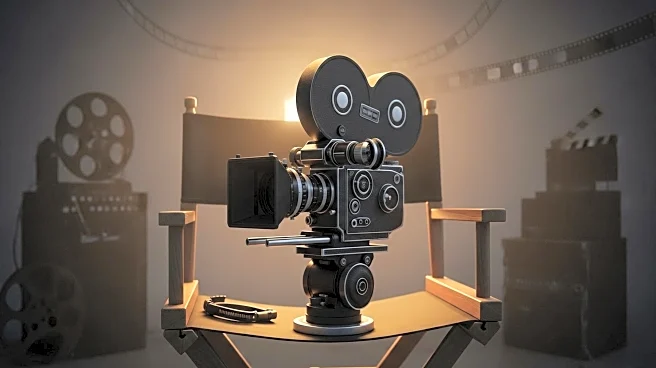What's Happening?
Francis Ford Coppola's long-awaited film project, Megalopolis, is the subject of a new documentary by director Mike Figgis. The documentary provides an intimate look at Coppola's creative process, showcasing his work with actors and the challenges faced during production. Coppola, known for his entrepreneurial spirit, self-funded the $120 million project by selling part of his wine business. The documentary captures Coppola's passion for filmmaking, including his willingness to spend and even lose money for the sake of cinema. It also highlights Coppola's interactions with his cast, including notable actors such as Jon Voight, Aubrey Plaza, and Dustin Hoffman, while tactfully omitting reports of inappropriate behavior on set.
Why It's Important?
The documentary offers valuable insights into the filmmaking process, particularly the challenges faced by directors in bringing ambitious projects to life. Coppola's dedication to Megalopolis underscores the financial risks and personal sacrifices involved in pursuing artistic vision. The film's production, marked by the sacking of the entire VFX team and high daily costs, reflects the complexities of managing large-scale projects. This documentary not only celebrates Coppola's legacy but also serves as a testament to the resilience required in the film industry, providing inspiration to filmmakers and audiences alike.
What's Next?
As Megalopolis continues to generate interest, the documentary may influence perceptions of the film and its reception upon release. The insights provided by Figgis could spark discussions about the sustainability of self-funded projects and the evolving dynamics of film production. Industry stakeholders may consider the implications of Coppola's approach, potentially leading to new strategies for financing and managing ambitious cinematic endeavors.
Beyond the Headlines
The documentary raises questions about the ethical dimensions of filmmaking, particularly in relation to on-set behavior and the treatment of cast and crew. It also highlights the cultural impact of Coppola's work, which has historically challenged conventional narratives and pushed creative boundaries. The film's exploration of ancient Rome through a modern lens may provoke discussions about historical representation and artistic interpretation.










